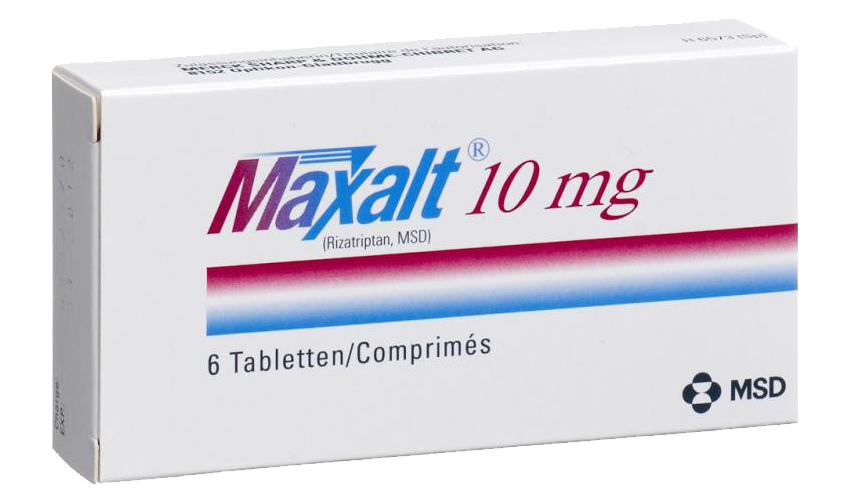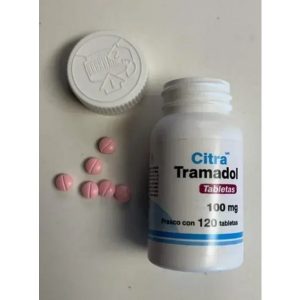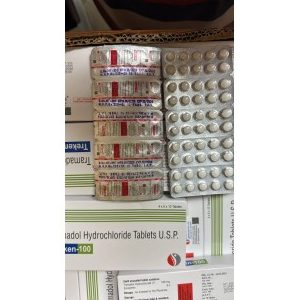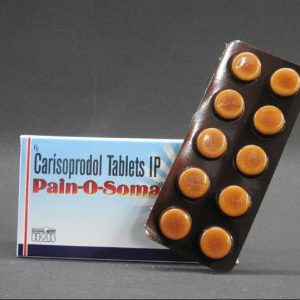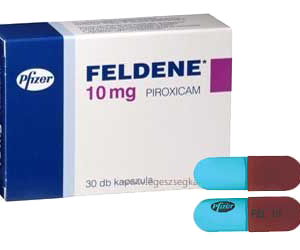What is Maxalt?
Maxalt (rizatriptan) is a headache medicine that narrows the blood vessels around the brain. Rizatriptan also reduces substances in the body that can trigger headache pain, nausea, sensitivity to light and sound, and other migraine symptoms.
Maxalt is used to treat migraine headaches. Maxalt will only treat a headache that has already begun. It will not prevent headaches or reduce the number of attacks.
Maxalt should not be used to treat a common tension headache, a headache that causes loss of movement on one side of your body, or any headache that seems to be different from your usual migraine headaches. Use this medication only if your condition has been confirmed by a doctor as migraine headaches.
Maxalt may also be used for purposes not listed in this medication guide.
Important information
You should not take Maxalt if you are allergic to rizatriptan, if you have any history of heart disease, or if you have coronary heart disease, angina, blood circulation problems, lack of blood supply to the heart, uncontrolled high blood pressure, ischemic bowel disease, a history of a heart attack or stroke, or if your headache seems to be different from your usual migraine headaches.
Do not take Maxalt within 24 hours before or after using another migraine headache medicine, including almotriptan (Axert), eletriptan (Relpax), frovatriptan (Frova), naratriptan (Amerge), sumatriptan (Imitrex, Treximet), zolmitriptan (Zomig), or ergot medicine such as ergotamine (Ergomar, Cafergot, Migergot), dihydroergotamine (D.H.E. 45, Migranal), or methylergonovine (Methergine). Do not use Maxalt if you have taken a monoamine oxidase inhibitor (MAOI) such as furazolidone (Furoxone), isocarboxazid (Marplan), phenelzine (Nardil), rasagiline (Azilect), selegiline (Eldepryl, Emsam, Zelapar), or tranylcypromine (Parnate) in the past 14 days.
Before taking Maxalt, tell your doctor if you have liver or kidney disease, high blood pressure, a heart rhythm disorder, or coronary heart disease (or risk factors such as diabetes, menopause, smoking, being overweight, having high cholesterol, having a family history of coronary artery disease, being older than 40 and a man, or being a woman who has had a hysterectomy).
Also tell your doctor if you are also taking an antidepressant such as citalopram (Celexa), duloxetine (Cymbalta), escitalopram (Lexapro), fluoxetine (Prozac, Sarafem, Symbyax), fluvoxamine (Luvox), paroxetine (Paxil, Pexeva), sertraline (Zoloft), trazodone (Desyrel, Oleptro), venlafaxine (Effexor), or vilazodone (Viibryd).
Maxalt will only treat a headache that has already begun. It will not prevent headaches or reduce the number of attacks.
After taking a Maxalt tablet, you must wait two (2) hours before taking a second tablet. Do not take more than 30 mg of rizatriptan in 24 hours.
Before using Maxalt
You should not take Maxalt if you are allergic to rizatriptan, or if you have:
coronary heart disease, angina (chest pain), blood circulation problems, lack of blood supply to the heart;
a history of heart disease, heart attack, or stroke, including «mini-stroke»;
severe or uncontrolled high blood pressure;
ischemic bowel disease; or
a headache that seems different from your usual migraine headaches.
Do not take Maxalt if you have taken a monoamine oxidase inhibitor (MAOI) such as furazolidone (Furoxone), isocarboxazid (Marplan), phenelzine (Nardil), rasagiline (Azilect), selegiline (Eldepryl, Emsam, Zelapar), or tranylcypromine (Parnate) in the past 14 days.
To make sure you can safely take Maxalt, tell your doctor if you have any of these other conditions:
liver disease;
kidney disease (especially if you are on dialysis);
high blood pressure, a heart rhythm disorder; or
coronary heart disease (or risk factors such as diabetes, menopause, smoking, being overweight, having high cholesterol, having a family history of coronary artery disease, being older than 40 and a man, or being a woman who has had a hysterectomy).
Rizatriptan disintegrating tablets (Maxalt MDT) may contain phenylalanine. Talk to your doctor before using this form of rizatriptan if you have phenylketonuria (PKU).
FDA pregnancy category C. It is not known whether Maxalt will harm an unborn baby. Tell your doctor if you are pregnant or plan to become pregnant while using Maxalt.
Your name may need to be listed on a Maxalt pregnancy registry when you start using this medication.
It is not known whether rizatriptan passes into breast milk or if it could harm a nursing baby. Do not use Maxalt without telling your doctor if you are breast-feeding a baby.
Do not give a Maxalt regular tablet to anyone under 18 years old. Only Maxalt orally disintegrating tablets (Maxalt-MLT) are for use in children who are at least 6 years old.
How should I use Maxalt?
Take Maxalt exactly as prescribed by your doctor. Do not take in larger or smaller amounts or for longer than recommended. Follow the directions on your prescription label. Overuse of migraine headache medicine can actually make your headaches worse.
Take Maxalt as soon as you notice headache symptoms, or after an attack has already begun.
Your doctor may want to give your first dose of Maxalt in a hospital or clinic setting to see if you have any serious side effects.
Take one Maxalt tablet whole with a full glass of water.
To take rizatriptan orally disintegrating tablets (Maxalt-MLT):
Keep the tablet in its blister pack until you are ready to take the medicine. Open the package and peel back the foil from the tablet blister. Do not push a tablet through the foil or you may damage the tablet.
Using dry hands, remove the tablet and place it in your mouth. It will begin to dissolve right away.
Do not swallow the tablet whole. Allow it to dissolve in your mouth without chewing.
Swallow several times as the tablet dissolves. If desired, you may drink liquid to help swallow the dissolved tablet.
After taking a tablet: If your headache does not completely go away, or goes away and comes back, take a second tablet two (2) hours after the first. Do not take more than 30 mg of rizatriptan in 24 hours. If your symptoms have not improved, contact your doctor before taking any more tablets.
Contact your doctor if you have more than four headaches in one month (30 days).
If you use Maxalt long-term, your doctor may want to check your heart function using an electrocardiograph or ECG (sometimes called an EKG), a machine that measures electrical activity of the heart. This will help your doctor determine if it is still safe for you to use this medication. Visit your doctor regularly.
Store Maxalt at room temperature away from moisture and heat.
What happens if I miss a dose?
Since Maxalt is used as needed, it does not have a daily dosing schedule. Call your doctor promptly if your symptoms do not improve after using Maxalt.
After taking a Maxalt tablet, you must wait two (2) hours before taking a second tablet. Do not take more than 30 mg of rizatriptan in 24 hours.
What happens if I overdose?
Seek emergency medical attention.
Overdose could cause high blood pressure (severe headache, blurred vision, buzzing in your ears, anxiety, confusion, chest pain, shortness of breath, uneven heartbeats, or seizure).
What should I avoid?
Do not take Maxalt within 24 hours before or after using another migraine headache medicine, including:
almotriptan (Axert), eletriptan (Relpax), frovatriptan (Frova), naratriptan (Amerge), sumatriptan (Imitrex, Treximet), or zolmitriptan (Zomig); or
ergot medicine such as ergotamine (Ergomar, Cafergot, Migergot), dihydroergotamine (D.H.E. 45, Migranal), or methylergonovine (Methergine).
Maxalt may impair your thinking or reactions. Be careful if you drive or do anything that requires you to be alert.
Maxalt side effects
Get emergency medical help if you have any of these signs of an allergic reaction to Maxalt: hives; difficulty breathing; swelling of your face, lips, tongue, or throat. Stop using Maxalt and call your doctor at once if you have a serious side effect such as:
feeling of pain or tightness in your jaw, neck, or throat;
chest pain or heavy feeling, pain spreading to the arm or shoulder, nausea, sweating, general ill feeling;
sudden numbness or weakness, especially on one side of the body;
sudden severe headache, confusion, problems with vision, speech, or balance;
sudden and severe stomach pain and bloody diarrhea;
numbness or tingling and a pale or blue-colored appearance in your fingers or toes; or
(if you are also taking an antidepressant) — agitation, hallucinations, fever, fast heart rate, overactive reflexes, nausea, vomiting, diarrhea, loss of coordination, fainting.
Less serious Maxalt side effects may include:
mild headache (not a migraine);
dry mouth, mild nausea;
pressure or heavy feeling in any part of your body;
dizziness, drowsiness, tired feeling; or
warmth, redness, or mild tingling under your skin.
This is not a complete list of side effects and others may occur. Call your doctor for medical advice about side effects.
What other drugs will affect Maxalt?
Tell your doctor about all other medicines you use, especially:
propranolol (Inderal, InnoPran); or
an antidepressant such as citalopram (Celexa), duloxetine (Cymbalta), escitalopram (Lexapro), fluoxetine (Prozac, Rapiflux, Sarafem, Selfemra, Symbyax), fluvoxamine (Luvox), paroxetine (Paxil, Pexeva), sertraline (Zoloft), trazodone (Desyrel, Oleptro), venlafaxine (Effexor), or vilazodone (Viibryd).
This list is not complete and other drugs may interact with Maxalt. Tell your doctor about all medications you use. This includes prescription, over-the-counter, vitamin, and herbal products. Do not start a new medication without telling your doctor.
